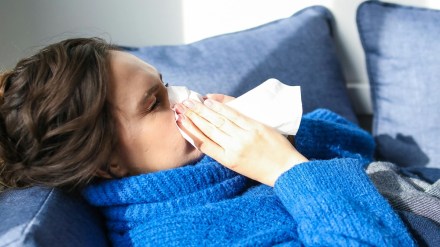Winter can be particularly challenging for those prone to sinusitis. The season brings a host of environmental factors that can aggravate sinus conditions. Cold, dry air, poor air quality, indoor heating, and exposure to pet dander are just a few of the factors that contribute to sinusitis during the winter months. According to Dr Deepti Sinha, Lead Consultant, Dept of ENT at the CK Birla Hospital, understanding the causes, symptoms, and treatment options for winter sinusitis can help alleviate discomfort and prevent recurrent infections.
- Cold, Dry Air: The cold, dry air typical of winter can dry out the mucus lining in your nose and sinuses. This thickens the mucus, making it more difficult for your sinuses to drain properly, which increases the likelihood of sinus congestion and infection.
- Indoor Heating: While heating systems keep us warm during the winter months, they also dry out the air inside. This lack of humidity can further irritate the sinuses and create an environment conducive to infection.
- Pet Dander: Exposure to pet dander from cats and dogs is another common trigger for sinusitis symptoms. Pets that shed fur and dander can exacerbate existing sinus issues, especially when people spend more time indoors during the colder months.
- Poor Air Quality: Winter often brings poor air quality, especially in cities with high pollution levels. The cold weather causes the immune system to work less effectively, making the body more susceptible to infections, including sinusitis.
- Overcrowding Indoors: As people tend to stay indoors more during winter, there is an increased risk of exposure to germs from others. Overcrowded spaces, such as offices or schools, contribute to the spread of respiratory viruses that can trigger sinus infections.
Symptoms of Sinusitis
Sinusitis, or a sinus infection, often presents with symptoms such as:
- Facial pain or pressure: The most common symptom, it can occur around the eyes, forehead, and cheeks.
- Headaches: The pressure in the sinuses often causes headaches.
- Runny or stuffy nose: Blocked sinuses lead to congestion, and the nose may run due to excessive mucus.
- Sore throat: Post-nasal drip from sinus drainage can irritate the throat, causing discomfort.
Preventing Sinusitis in Winter
To reduce the likelihood of sinus problems during winter, consider the following tips:
- Manage Indoor Humidity: Use a humidifier to add moisture to dry indoor air, helping prevent your sinuses from becoming too dry.
- Groom Pets Regularly: Regular grooming of pets can reduce the amount of pet dander in the home, minimizing its impact on your sinuses.
- Treat Mold Growth: Mold can exacerbate sinus issues, so it’s important to address any mold problems in your home immediately.
- Use Air Purifiers: Air purifiers can help filter out allergens, dust, and pet dander, improving air quality indoors.
Remedies for Winter Sinusitis
If you do develop sinusitis symptoms, there are several remedies you can try:
- Steam Inhalation: Breathing in steam from a hot shower or bowl of hot water can help loosen mucus and relieve sinus congestion.
- Hot Soups: Warm liquids like soups can soothe the throat and help loosen mucus, making it easier to clear your sinuses.
- Saline Nasal Spray: Rinsing your nose with saline spray can help moisturize the nasal passages and clear out excess mucus.
- Maintain a Healthy Lifestyle: Eating a balanced diet, exercising regularly (avoiding outdoor exercise when air pollution is high), and getting plenty of rest can strengthen your immune system, reducing your risk of infection.
Medical Treatments for Sinusitis
If your sinusitis is more severe or doesn’t improve with home remedies, it’s essential to consult a doctor. Depending on the cause and severity, your healthcare provider may recommend:
- Decongestants: These can help relieve nasal congestion.
- Oral Steroids: These are sometimes prescribed for more severe cases to reduce inflammation in the sinuses.
- Antihistamines: If allergies are contributing to sinus problems, antihistamines can help manage symptoms.
- Nasal Steroid Sprays: These can reduce inflammation and swelling in the nasal passages.
- Antibiotics: If a bacterial infection is diagnosed, your doctor may prescribe antibiotics to treat it.
“Winter sinusitis is a common condition, but understanding its causes and symptoms can help you take proactive measures to prevent and manage it. From managing indoor humidity levels to using air purifiers and staying hydrated, small changes can significantly reduce your risk of sinus infections,” Dr. Sinha told Financial Express.com.
If you do develop symptoms, early treatment with home remedies or medical intervention can provide relief and prevent complications. By following these preventive and treatment strategies, you can keep your sinuses healthy and breathe easy throughout the winter season, she said.
